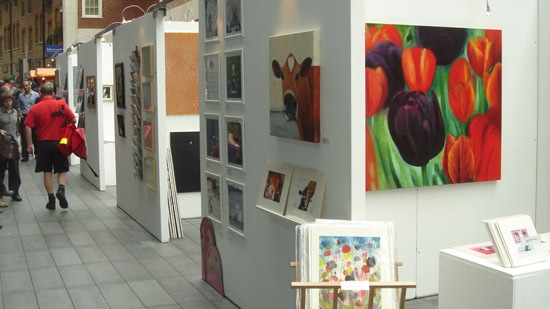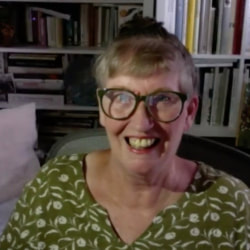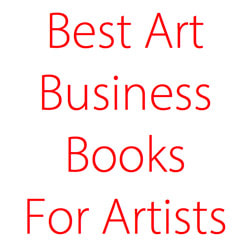- Home
- NEWS
-
PRACTICE
-
MARKETING
- How to write an Artist's Statement >
- How to write an Artist's Resume or CV >
- How to sign a painting, drawing or fine art print
- Business Cards for Artists
- How to write a press release for an artist
- The Private View Invitation
- Publicity for Juried Exhibitions
- Websites for Artists >
- Image & Video sizes for Social Media Sites
- How to be mobile-friendly
-
SELL ART
- FRAME ART
-
SHIP ART
-
COPYRIGHT
-
MONEY & TAX
- About + Help
- BANKING
|
In the UK Income tax is charged on “the profits of a trade, profession or vocation”. You are assessed as trading and therefore must do a tax return if you exhibit one of the nine badges of trade. But do you know what these are? See the box below for an explanation. First you need to note that a lot of tax law focuses on "the asset”. However there isn’t a lot of tax case law relating to artists - so what follows is my interpretation. Please note that I’m NOT a tax accountant and if you need professional advice you should pay a professional! For what it's worth, in the case of an artist I read “ the asset” as meaning either your stock of equipment and materials used to generate sales (which has a balance sheet value); or your stock of artwork (which has a balance sheet value) which is exhibited and sold over time via exhibitions, online, art fairs or wherever to generate an income. The nine badges of 'trade'One of the reasons why HMRC wants to know whether or not you are trading is because it needs to know what sort of tax to apply to your income. For example, money you receive can be a taxable receipt that can arise in a number of ways. These are:
Below are the Nine Badges of Trade which HMRC have declared to be indications of trade - and my interpretation of how these apply to artists. Please also remember that at the end of the day what matters is if you generated trading income or intended to trade - NOT how much profit you've made. 1. Profit seeking motive Does HMRC think your motive is to make profit? If your behaviour indicates it is (e.g. Do you actively market it in exhibitions or online? Do you take commissions?), then your income from art sales will be considered to be business turnover and eligible for taxation.
(Note: If you sell paintings in a very minor way you can be classed as a hobby painter which means you can't claim any expenses against tax). From April 2017, HMRC will introduce a £1,000 allowance for “hobby” activities which make money - and you don't have to declare the income for taxation - and neither can you claim any expenses against tax. You might use this now as a benchmark as to whether or not HMRC might consider you to be trading - but note that the allowance only starts from April. Normal rules apply for 2o16/17. 2. Number of transactions The number of transactions matter.
3. Nature of the asset The issue is whether you would hold an asset as an ordinary individual. If the asset you own and use to make income/profit is not personal, then this is a badge of trade. To demonstrate that your selling activity is a hobby, you may need to prove the goods gave you “pride of possession”, for example, you create pictures for personal enjoyment and hang them on your wall at home for a while before selling them. 4. Existence of similar trading transactions or interests The issue here is whether the transactions you engage in are related to your normal work.
5. Changes to the asset Ask yourself whether you repair, alter or improve items to make them more marketable at a higher price with a view to generating a profit If you change an asset you have bought to make it more marketable (e.g oil paint and canvas become an oil painting) and you then sell it for significantly more than the cost of the art materials then you are indicating that this was the purpose of the painting and you are engaging in trade 6. The way the sale was carried out If it looks like trading then it probably is trading. If people who work professionally as artists take stands at art markets and art fairs then if you do the same you stop being a hobby artist and start engaging in trade. 7. The source of finance If you needed a loan to buy your asset (eg a printing press) - and you wouldn’t have bought it as an ordinary individual and cannot afford to repay the loan without generating income from it e.g. the sale of fine art prints, then this indicates an intention to engage in trade. 8. Interval of time between purchase and sale How long you hold an asset for is an important indicator of trade. Typically, people who trade successfully tend not to have a long period between the acquisition of the asset used (eg art materials) to create the asset that they then sell (eg artwork). 9. Method of acquisition. If the assets used for your art business are inherited or somebody gave them to you, then your use of them is not an indication of trade. If you are a hobby printmaker, I guess I can’t think of a better reason for your significant other to give you a gift of a printing press!
0 Comments
Your comment will be posted after it is approved.
Leave a Reply. |
Wanting to find out about the business side of art?
Art Business Info. News for Artists
Successful artists get on top of the business side of being an artist. Do you want to: Visitors so farNo. of visitors since April 2015:
and receive every post via email.
AuthorKatherine Tyrrell writes about art, artists and the art business and has followers all over the world. She also delivers workshops for art organisations and reviews websites and career strategies for artists. Art Business Blogs
Art Biz Blog (Alyson Stanfield) ArtBusiness.com (Alan Bamberger) Art Business News ArtsBusiness Institute Art Marketing News (Barney Davey) ArtPromotivate - Tips Artsy Shark (Carolyn Edlund) Be Smart about Art (Susan Mumford) edward_winkleman Fine Art Views (Clint Watson) Laura C George Professional Artist - News Right Brain Rock Star - no longer publishing Savvy Painter Podcasts The Abundant Artist (Cory Huff) The Art Law Blog The Clarion List - Blog Archives
January 2024
Categories
All
|
This website aims to provide a compendium of resources about the art business for artists. Please read "PLEASE NOTE"
It helps artists learn how to do better at being business-like, marketing and selling their art and looking after their financial security.
|
Copyright: 2015-2021 Katherine Tyrrell | Making A Mark Publications
- all rights reserved If you've got any suggestions for what you'd like to see on this website please send me your suggestion
|
PLEASE NOTE:
1) Content and the law change all the time. It's impossible to keep up with it if you're not working on the topic full time. 2) I research topics carefully. However, I am totally unable to warrant that ANY and/or ALL information is
|
3) Hence all information I provide comes without any LIABILITY whatsoever to you for any choices you make.
4) This website is FREE FOR YOU but not for me. Links to books are Amazon Affiliate links. Buying a book via this website means I get a very small payment which helps to fund and maintain this website. .I much appreciate any support your provide. Adverts are provided by Google AdSense - but the adverts do not mean I endorse the advertiser. |
- Home
- NEWS
-
PRACTICE
-
MARKETING
- How to write an Artist's Statement >
- How to write an Artist's Resume or CV >
- How to sign a painting, drawing or fine art print
- Business Cards for Artists
- How to write a press release for an artist
- The Private View Invitation
- Publicity for Juried Exhibitions
- Websites for Artists >
- Image & Video sizes for Social Media Sites
- How to be mobile-friendly
-
SELL ART
- FRAME ART
-
SHIP ART
-
COPYRIGHT
-
MONEY & TAX
- About + Help
- BANKING




 RSS Feed
RSS Feed